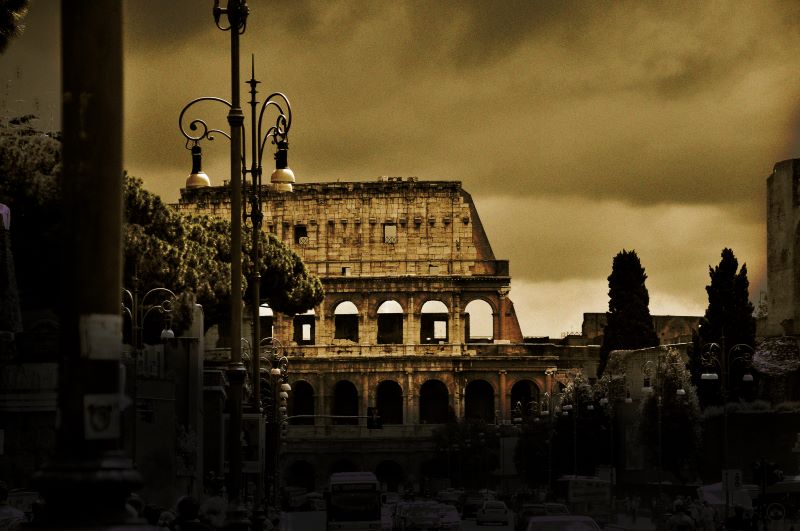Are All Cultures the Same?
Sign up for a six month free
trial of The Stand Magazine!
(The first two blogs in this series can be found here and here.)
Summary thus far: According to Acts 17:16-34, humanity consists of one race of people, descended from one man, Adam. However, God separated that one race into different ethnic groups. The word for these groups, often translated “nation,” is the Greek ethnos, from which we get the English word ethnicity. This refers to a distinct people who share a culture.
Nothing in the Bible indicates that it is wrong to be a part of a different ethnos per se. After all, it was God who separated the human race into distinct ethnic groups. For example, to be a Norwegian is no better than being a Comanche Indian. Speaking Chinese is no better than speaking Portuguese. These sorts of ethnic distinctions are therefore benign.
However, just because some distinctions appear to divinely ordained and benign doesn’t mean everything about ethnos is benign. Seeing that ethnicity and culture consist not only of physical appearance and language but also things like religion, law, morality, customs, taboos, etc., it becomes clear from Scripture that God can – and does – have a big problem with some cultures.
In Acts 17:16-34, Paul says God gives “life and breath” to all people, who then live together in their separate ethnic enclaves. But there is a third gift in verse 25: “He Himself gives to all people … all things.” This seems to be an all-encompassing way to indicate the provision of the “building blocks” with which human beings construct their societies.
After all, God formed Adam out of the dirt – literally constructing the first man out of the materials that were present – and then fashioned Eve out of Adam. (Together they represented the image of God.) How natural for mankind to then be commissioned to take “all things” provided by God and fashion a culture that manifests the image of God. Isn’t that what people do? They take what exists and fashion it into something? One might say that what we do with the life, breath, and building blocks that we are given by God is our gift to Him.
Of course, the problem is that human history is an almost unbroken trail of exactly the opposite. We consistently warp the image of God and misrepresent Him. As an example of this tragedy, Paul says that the Athenians have formed idols of “gold or silver or stone, an image formed by the art and thought of man” (v. 29). What they fashioned within their ethnos was wrong.
This explains Paul’s initial response to Athenian culture: “[H]is spirit was being provoked within him as he was observing the city full of idols” (v. 16). Spiritually, Paul was “being provoked” because God was not being honored by the people of the city.
There is this same sense of rejection of God in the example of the Samaritan woman in John 4. While Jesus does not condemn the existence of a distinct people group named the “Samaritans,” He does reject the religious expression of their ethnos. Jesus makes it clear that the Samaritans are worshiping in ignorance, and He calls them out of their idolatry and invites them to worship “in spirit and in truth” (vs. 24).
In both of these accounts, we glimpse the tension of the Christian in the world. We live on an imperfect and broken plane, filled with pagan beliefs and practices, but simultaneously populated by lost people groping for God. Here there is a titanic spiritual war – and a final day of judgment that is approaching (Acts 17:31). Just as Jesus confronted Samaritan idolatry, so the apostle Paul engaged the people of Athens. In verses 16-17, Paul “was reasoning” with any who would listen, both in religious places (“in the synagogue”) and in the public sphere (“in the market place").
There’s no doubt about the core of these exchanges: “[H]e was preaching Jesus and the resurrection” (v. 18). The correction for lies is the truth; the solution for darkness is light; the salvation of lost people is found in the gospel.
In my last blog, I mentioned Paul’s reference to the inhabitants of the island of Crete. About them the apostle Paul said: “One of themselves, a prophet of their own, said, ‘Cretans are always liars, evil beasts, lazy gluttons.’ This testimony is true. For this reason reprove them severely so that they may be sound in the faith” (Titus 1:12-14).
The people of Crete were morally bankrupt. Paul said this was a fact. Since we believe Paul was inspired by God to write this epistle to Titus, we also believe this was a divine declaration. God said this about Cretans.
However – and this is an extremely important point – Cretans weren’t morally bankrupt because they were Cretans. They were in this condition because their ethnos was fashioned without the truth of God. They were warped by a culture that was morally bankrupt.
Ironically, the proof of this is found in the history of the Jewish people, of which Paul was a part. Read the Old Testament and you’ll find a testimony of an ethnos that often reflected the image of God – as well as behavior every bit as depraved as that found in first century Crete. The difference was always whether or not the Jewish ethnos was rooted in the truth of God’s word.
This is why Paul, after blasting the Cretan culture with a harsh broadside, told Titus to “reprove [the Christians there] severely so that they may be sound in the faith.” Only the word of God could change their behavior to reflect the kingdom, rather than the Cretan ethnos.
One may turn to the United States to provide a further example. In the forming of the ethnos of our country, there was much that reflected God’s word and much that did not. We can all agree that slavery grieved the heart of God. So did our treatment of Native Americans. In more recent years, so does our persistent support, from a legal standpoint, of the holocaust of abortion and the abomination of homosexual marriage. What might we expect God to say about Americans, like He said about Cretans? What would be the divine declaration concerning us?
Regardless of the differences between the various ethnic backgrounds of the people who occupy the planet, the truth of God is the standard by which all should be measured. Being black or Italian or French-speaking is fine – God fashioned humanity according to such distinctions. But how we all then fashion our ethnos is the point at which questions of right and wrong enter the discussion.
In general, therefore, we can say this: On the level of morality, behavior, law, custom, religion, etc., all cultures are not alike. God makes distinctions. He approves of some and disapproves of others. Therefore, so should we. Making distinctions between cultures is not a sin. Moreover, as we’ll see in the blogs to come, a single culture can have competing forces within it. An ethnos is not always monolithic.
It’s time for many Christians in the U.S. to realize this, take responsibility for our own American ethnos, and, as salt and light, work to conform it to God’s image.

Sign up for a free six-month trial of
The Stand Magazine!
Sign up for free to receive notable blogs delivered to your email weekly.


















